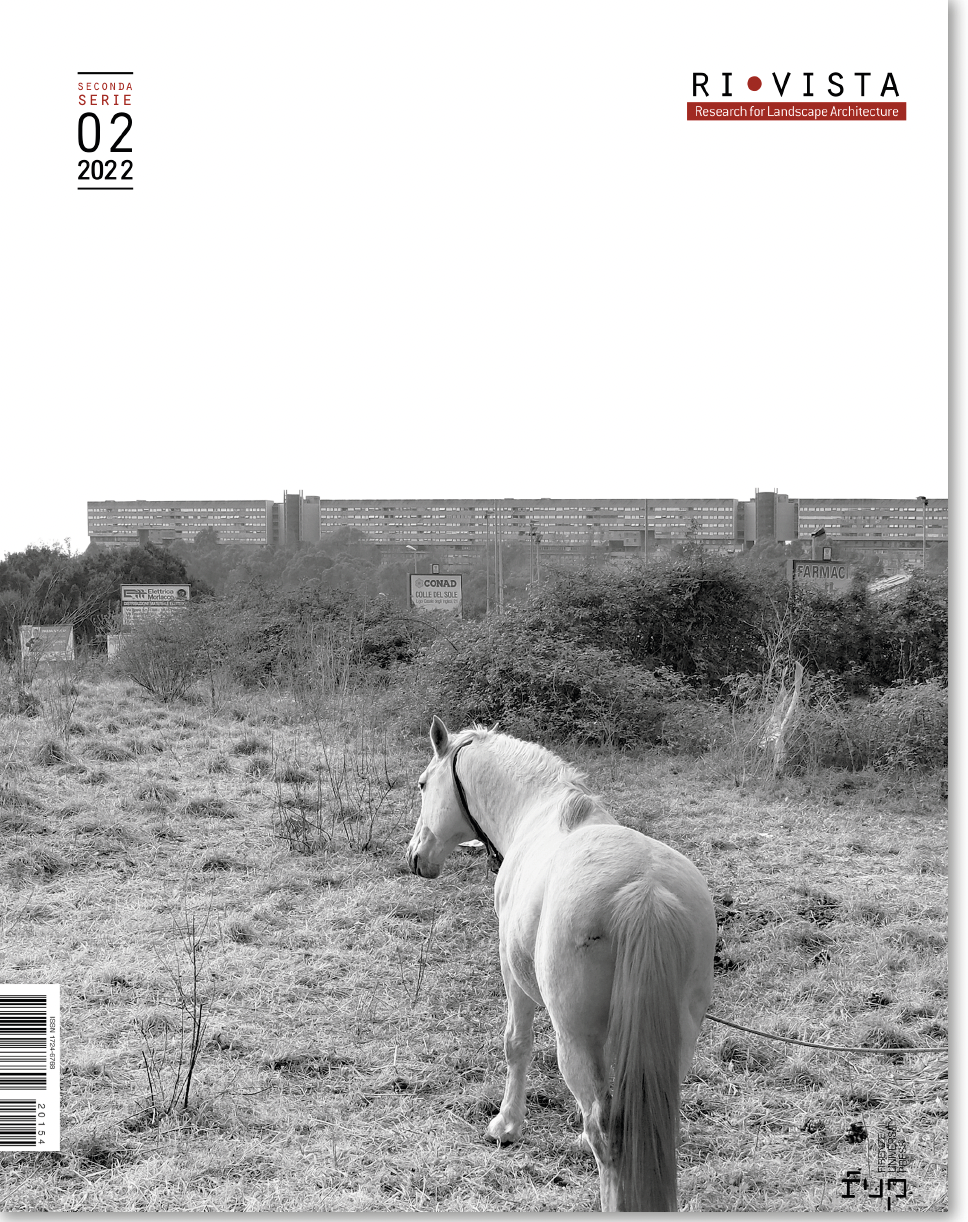The research hypothesis we intend to develop in this issue is that we need to test new knowledge paths and create new relationships with the natural world. This issue of Ri-Vista aims to creatively interconnect design disciplines’ competence, responsibility, and intentionality, rejecting fences and barriers.
Competence means the ability to counter the drifts of negationist irrationality. It means becoming familiar with the topics of co-evolution, as depicted in several recent research works on survival strategies and the intelligence of other species. We must stop thinking of trees, rivers, and animals as “natural resources” at our service, becoming aware of the strong family ties that connect the whole. Along this path, competence generates empathy, activating new forms of kinship (making kin) and new forms of concern for others (making kind), according to Donna Haraway’s definition.
Furthermore, the ongoing transformations are not the same for everyone. They increase the burden of inequalities, producing further poverty, forcing the abandonment of some territories and congestion of others. Climate change accelerates the processes triggered by consumption patterns exported by advanced countries to “poor regions.” The ecological exploitation and environmental destruction models have increasingly left behind vastly degraded and abandoned regions and communities. These conditions have only moved away from our sight, but they still affect our living conditions.
The landscape project’s point of view always seems to emotionally embrace these dramatic transformations due to the established and empathic interest in the “natural” components and the fate of soils, waters, and animals. A further step seems to be needed to face the violent transformation we are experiencing today. It appears, in fact, that it is necessary to overcome some consolidated and easily usable “oppositions” that have shaped from within modern thinking and influenced landscape design. They are harmful oppositions, which must be identified and removed if the issues of co-evolution and co-existence are to be successfully addressed. We are talking about the constitutive opposition between man and nature and its multiple derivatives: wild-domestic, productive-unproductive, urban-rural. These binomials produce a legacy hindering new forms of understanding on how different species can live together.
In this issue of Ri-Vista, we aim to collect creative experiences and co-evolution projects free from consolidated opposition. Still, we also seek to closely investigate them in order to recognize them better and avoid their use in the future.
Keywords: Nature, Other species, Making kin – Making kind, Landscape design
The call is open until June 30th 2022
Edited by Lucina Caravaggi
Info: emanuela.morelli@unifi.it
Registration and login as Author to the Ri-Vista system is required to submit and follow the status of the submission process online. For all information related to the submission process see: https://oaj.fupress.net/index.php/ri-vista/about/submissions

